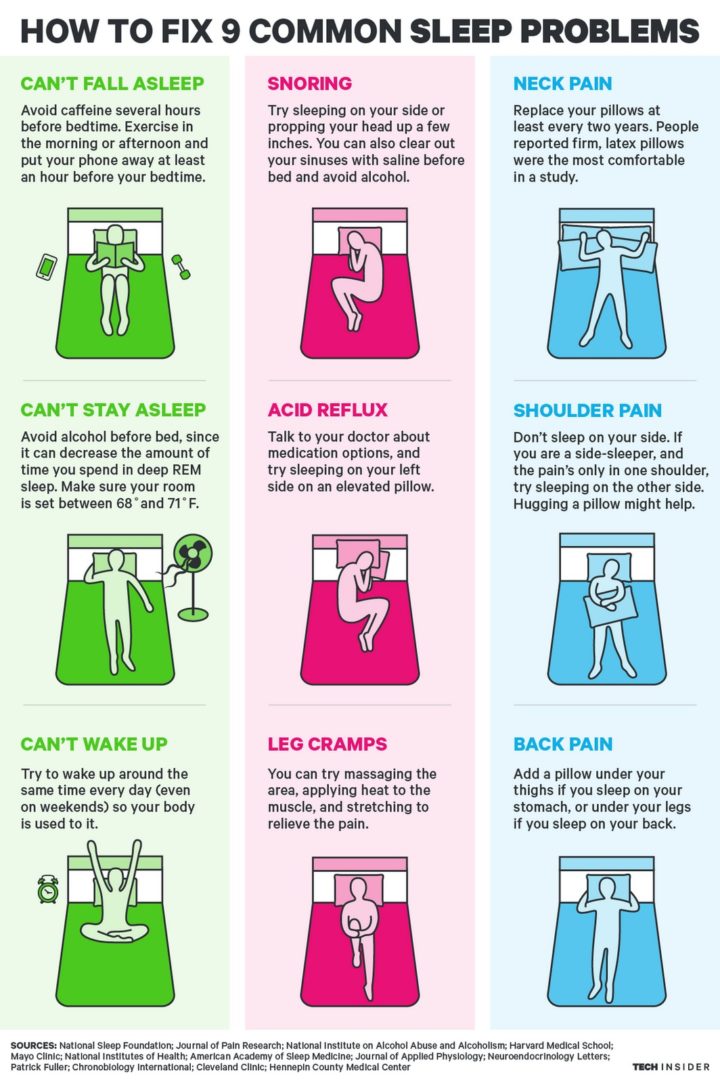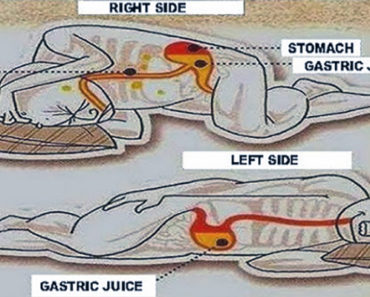- 3.6Kshares
- Share on Facebook
- Share on Twitter
- Pin on Pinterest
Life moves pretty fast for many of us and getting a restful night’s sleep is getting more and more difficult. While we need 7 to 9 hours of sleep, some people are sleep-deprived and end up waking up tired and groggy. A lack of sleep can affect not only your health but your quality of life. To make matters worse, when we finally do get some shut-eye, body pains or your partner snoring can prevent you from sleeping soundly. Avoiding some common sleep disorders is just one way to get a better night’s sleep.
While getting at least 7 hours of sleep is a good target, some studies have shown that women need more sleep than men. Nine common sleeping problems can be avoided with some tips and fixes. Obviously, all of these tips are useful only if you have a comfortable mattress and pillows. If you’re shopping for a new bed, explore affordable mattresses online or visit your local bedding stores. Without further ado, here are 9 common sleeping problems with tips to help you sleep better.
Most Common Sleep Disorders #1: Snoring.
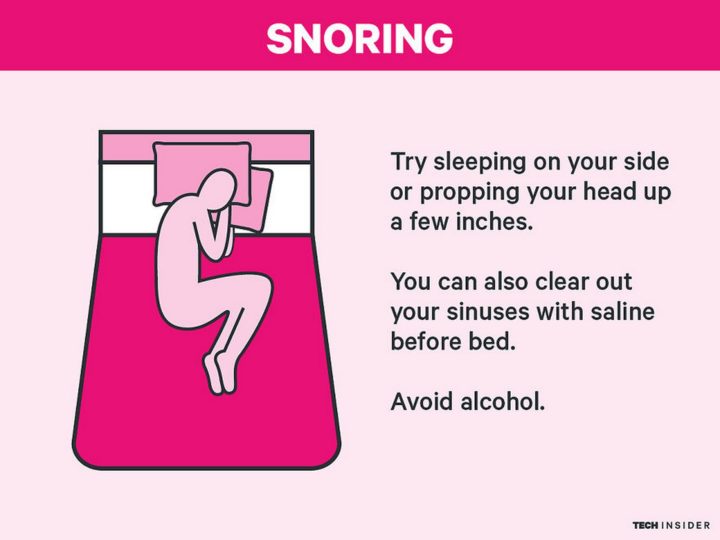
- Try new sleep positions like sleeping on your side or propping your head up a few inches. Whether you sleep on your right side, left side, or on your back or stomach, finding the best side to sleep on can help eliminate many sleeping problems. Snoring is caused by soft tissue and your tongue falling back and obstructing the airway when sleeping on your back.
- You can also clear out your sinuses with saline before bed. A blocked nose causes you to breathe from your mouth and aggravates snoring.
- Avoid alcohol. While some people claim they fall asleep faster by drinking alcohol, alcohol consumption 4 or 5 hours before bed reduces the resting tones of the muscles in your throat leading to more snoring.
- If you find yourself rolling back onto your back during the night, sew a tennis ball to the back of your shirt or pajama to sleep better on your side.
2) Shoulder pain.
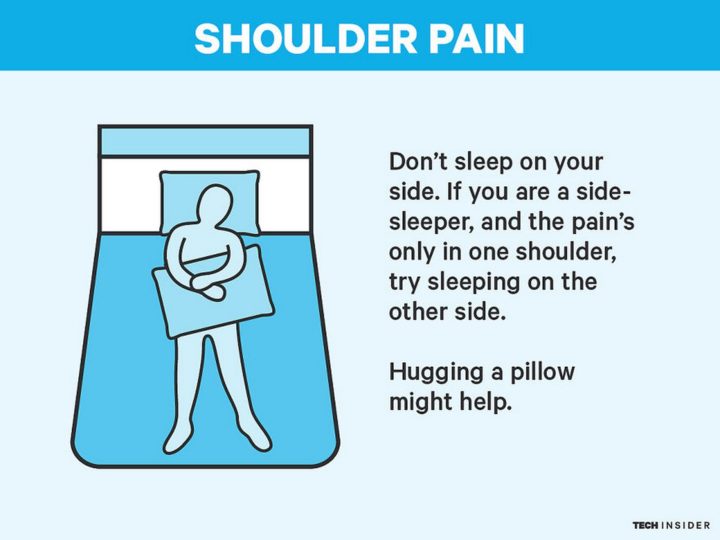
- Don’t sleep on your side. If you are a side-sleeper, and the pain is only in one shoulder, try sleeping on the other side.
- Hugging a pillow might help. Simply place a folded pillow in front of your body to support your painful arm or shoulder.
3) Back pain.
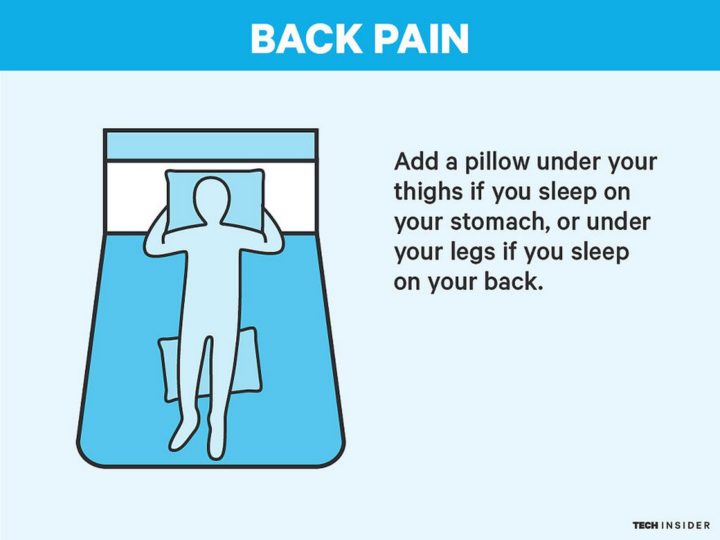
- Add a pillow under your thighs if you sleep on your stomach, or under your legs if you sleep on your back. If you sleep on your side, bring your knees up to your chest and place a pillow between your knees. One of the worst sleeping positions for back pain is on your stomach. It adds more strain to your back muscles and spine.
4) Can’t wake up.
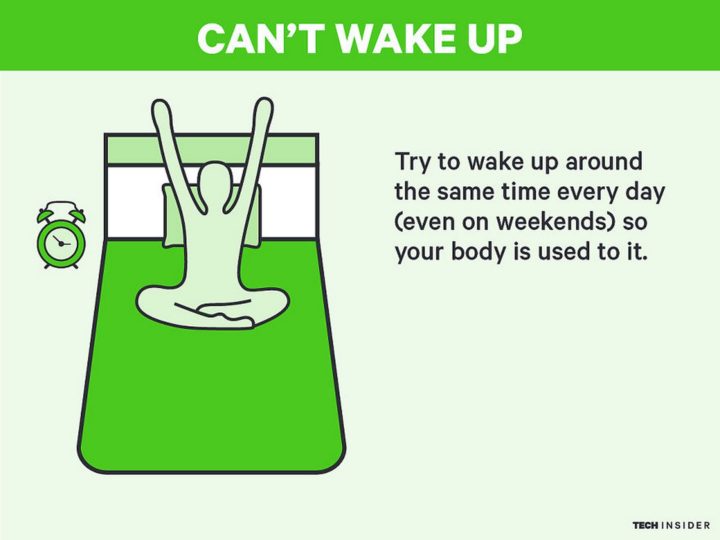
- Try to wake up around the same time every day (even on weekends) so your body is used to it. Going to bed and waking up at the same time every day helps regulate your internal clock for better quality sleep patterns.
5) Leg cramps.
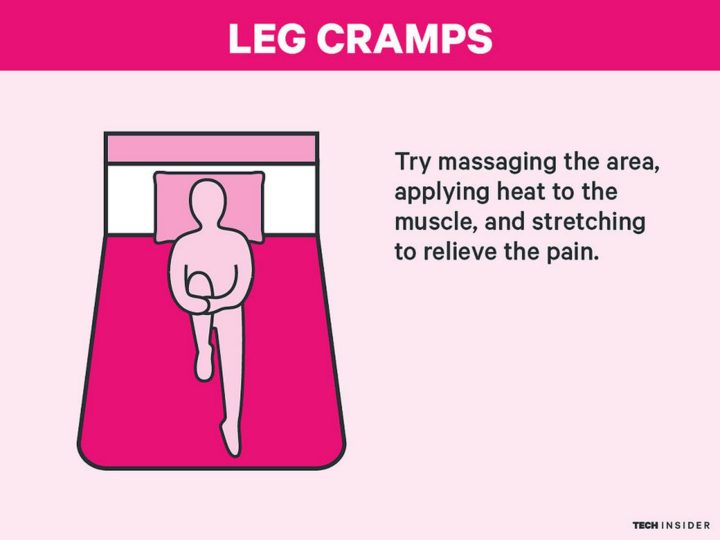
- Try massaging the area, applying heat to the muscle, and stretching to relieve pain. If you have frequent leg cramps, you may want to discuss whether magnesium supplements would offer any benefits with your doctor.
Most Common Sleep Disorders #6: Can’t fall asleep (Insomnia).
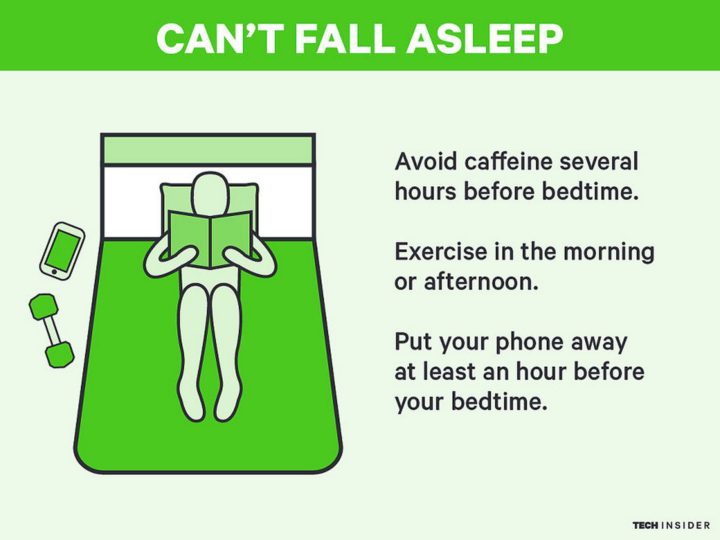
- Avoid caffeine several hours before bedtime. Coffee is a stimulant and is best avoided at least 6 hours before going to sleep.
- Exercise in the morning or afternoon. There is some debate whether exercising before bed is good for you but most experts agree that exercising during the day helps you power down before going to bed.
- Put your phone away at least an hour before your bedtime. Most smartphones emit “blue light” which mimics the sun and instructs your brain to stop producing melatonin, a hormone which helps you fall asleep. If you need access to your phone, some phones do have a night shift feature which lowers the color temperature of the display and cuts down on blue light.
Most Common Sleep Disorders #7: Can’t stay asleep.
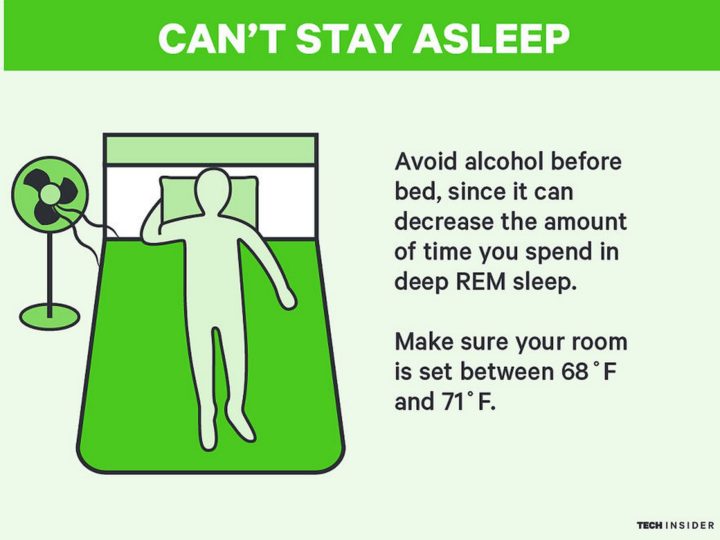
- Avoid alcohol before bed, since it can decrease the amount of time you spend in deep rapid eye movement (REM) sleep. REM cycles last approximately 90 minutes and are necessary for deep, restful sleep. While alcohol may help some people fall asleep faster, it ultimately prevents REM cycles and leads you to waking up tired.
- Make sure your room is set between 68 and 71 degrees Fahrenheit. Our body temperature drops as our bodies prepare to sleep; therefore, having a cooler room allows the optimal body temperature to be reached faster. Having a room that is too cold or too warm forces your body to struggle to reach its targeted internal temperature for proper sleep.
8) Neck pain.
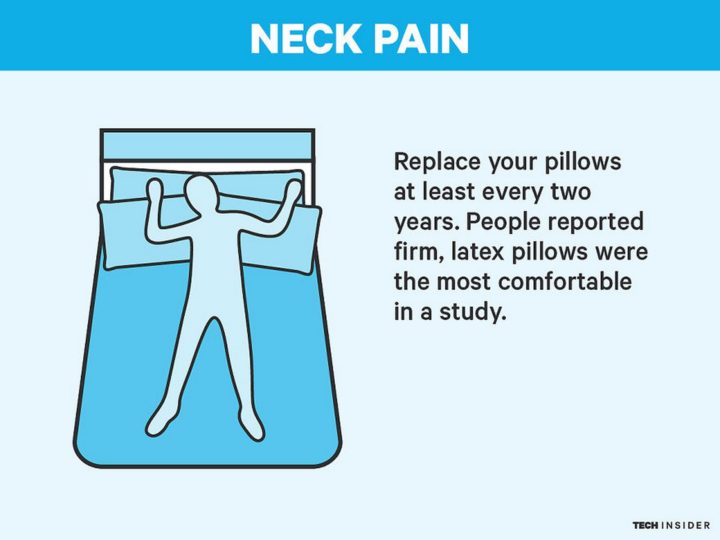
- Sleep better by replacing your pillows at least every two years. People reported firm, latex pillows were the most comfortable in a study. By contrast, feather pillows performed poorly and led to more waking symptoms.
9) Acid reflux.
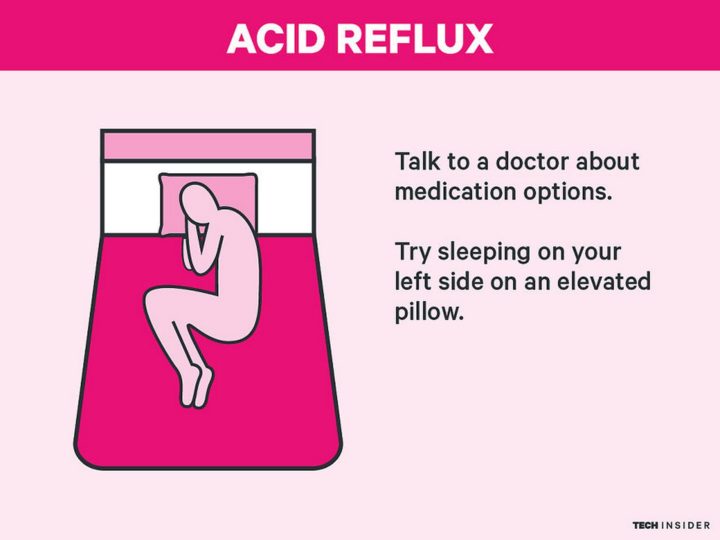
- Try sleeping on your left side on an elevated pillow to soothe or prevent heartburn. In fact, sleeping on your left side is a good habit and has amazing benefits. Some of these benefits include boosting the lymphatic system, improving digestion, and helping your heart work more efficiently.
- Because of gravity, symptoms such as coughing or heartburn worsens as you sleep since stomach acid flows from the stomach into the esophagus. If sleeping with your head elevated doesn’t work for you, please talk to your doctor about medication options.
H/t: Bored Panda
If you have a method or tip that you’ve found to help sleep better, let us know in the comments! Please share these tips to help prevent 9 of the most common sleep disorders with your friends and family.
Pin it or print it for later reference and sleep better!
